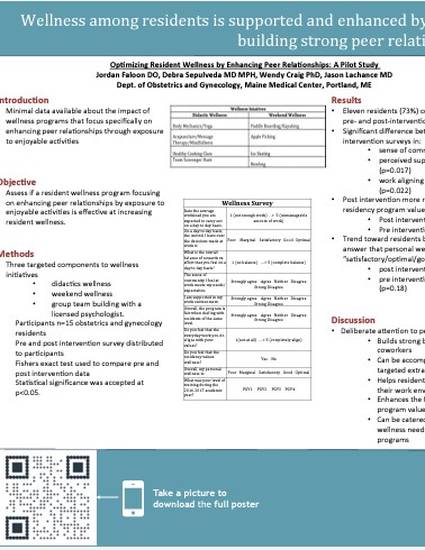
Purpose: To assess if a resident wellness program focused on enhancing peer relationships by exposure to targeted, extracurricular activities can effectively increase resident perception of wellness.
Background: As resident wellness progresses to the forefront of graduate medical education initiatives, several published efforts exist regarding wellness interventions. However, there is little data to determine the impact of wellness programs that focus specifically on enhancing peer relationships through exposure to wellness focused activities. Methods: Wellness initiatives were composed of three targeted components: didactics wellness, weekend wellness and group team building sessions with a licensed psychologist. Participants of this study completed pre- and post- intervention surveys. Response frequencies were compared between pre-intervention and post-intervention surveys by Fishers exact test. Statistical significance was determined at p<0.05.
Results: There was a significant difference between the pre- and post- intervention surveys in residents’ sense of community (P=0.025), perceived support at work (p=0.017), and work aligning with personal values (p=0.022). After the intervention more residents reported that the residency program valued wellness (pre 45.5%, post 100% , p=0.012). Residents were more likely to answer that personal wellness was “satisfactory/optimal/good” in the post intervention tests (81.8%) compared to the pre intervention test (45%.)
Discussion: Our pilot study suggests that deliberate attention to peer relationships via a variety of targeted extracurricular, non-clinical interventions can increase residents’ sense of community, alignment of work with values and perceived support within their work environment.
Available at: http://works.bepress.com/jason-lachance/7/

2020 Costas T. Lambrew Research Retreat